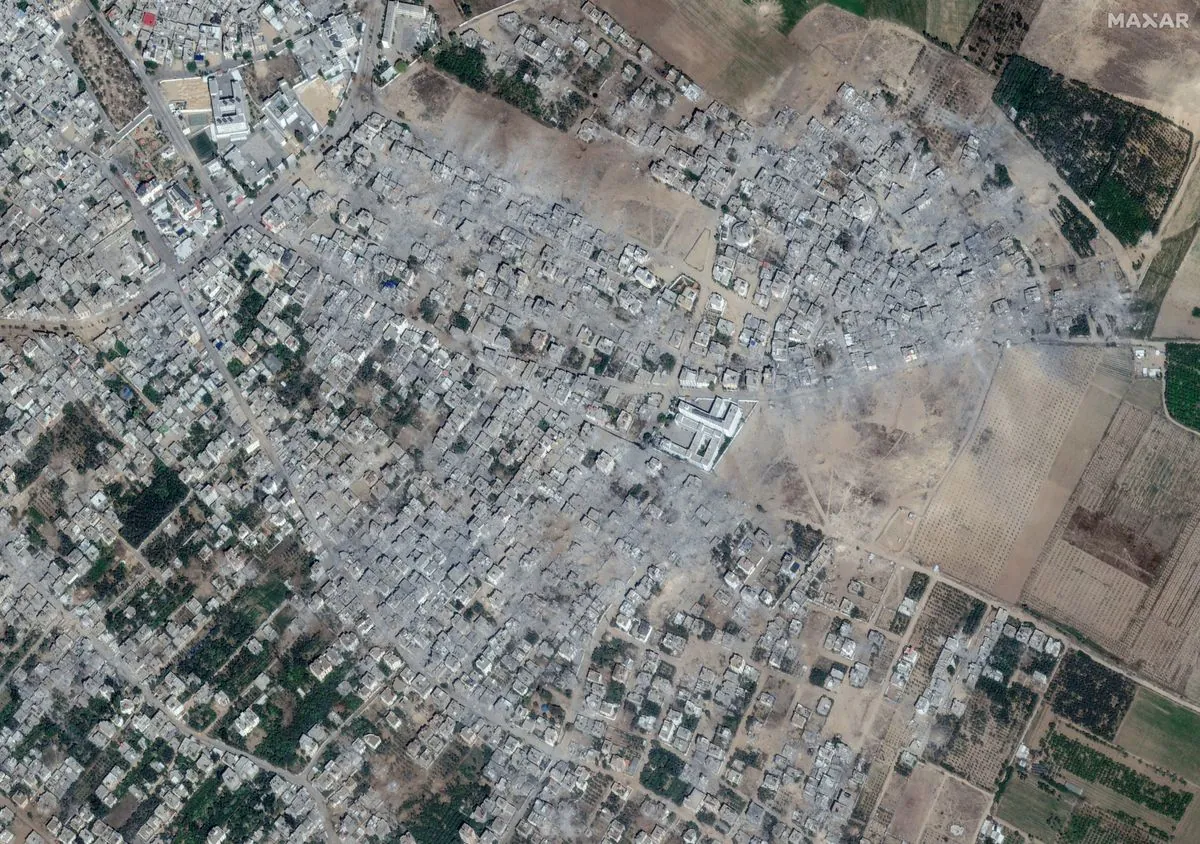U.S. Officials Doubt Gaza Ceasefire Deal Before Biden's Term Ends
U.S. officials believe a Gaza ceasefire between Israel and Hamas is unlikely before January 2025. Negotiations face obstacles despite ongoing efforts by the U.S., Qatar, and Egypt.

According to a recent Wall Street Journal report, U.S. officials now believe that a ceasefire agreement between Israel and Hamas in Gaza is improbable before the conclusion of President Joe Biden's term in January 2025. This assessment comes from high-ranking officials in the White House, State Department, and Pentagon, although they were not named in the report.
The Gaza Strip, a Palestinian territory on the eastern Mediterranean coast, has been a focal point of the Israeli-Palestinian conflict for decades. Hamas, a Palestinian Sunni-Islamic fundamentalist organization founded in 1987, controls the area, which has been under an Israeli-Egyptian blockade since 2007.
Despite previous optimism expressed by U.S. officials, negotiations have encountered significant hurdles. Two weeks prior to the report, Secretary of State Antony Blinken had stated that 90% of a ceasefire deal had been agreed upon. Similarly, Vice President Kamala Harris had repeatedly emphasized Washington's round-the-clock efforts to reach an agreement.
The United States, along with mediators Qatar and Egypt, has been actively involved in attempting to broker a ceasefire. Qatar, a small Gulf state, has played a significant role in Middle East diplomacy, while Egypt, sharing a border with Gaza, has been a key player in Israeli-Palestinian negotiations.
Two main obstacles have impeded progress:
- Israel's insistence on maintaining its forces in the Philadelphi Corridor, a narrow strip of land along the Gaza-Egypt border, to create a buffer zone.
- The complexities surrounding the exchange of Israeli hostages for Palestinian prisoners held by Israel.

On May 31, 2024, President Biden proposed a three-phase ceasefire plan, which he claimed Israel had agreed to at the time. However, this proposal has since encountered difficulties, and officials have indicated that a new proposal would be presented soon.
"The United States remains committed to facilitating a peaceful resolution to the conflict. We continue to work closely with all parties involved to overcome the remaining obstacles and achieve a lasting ceasefire."
Critics and human rights organizations have urged Washington to leverage its influence by conditioning military support to Israel. The United States has provided significant military aid to Israel, averaging about $3.8 billion annually. However, the U.S. government has maintained its support for its long-standing ally, a relationship that dates back to Israel's founding in 1948.
As the Israeli-Palestinian conflict enters its eighth decade, the international community continues to seek a resolution. The United Nations has passed numerous resolutions regarding the conflict, and past initiatives like the Oslo Accords in the 1990s have attempted to pave the way for peace. Despite these efforts, a lasting solution remains elusive, highlighting the complex nature of the situation in the region.


































